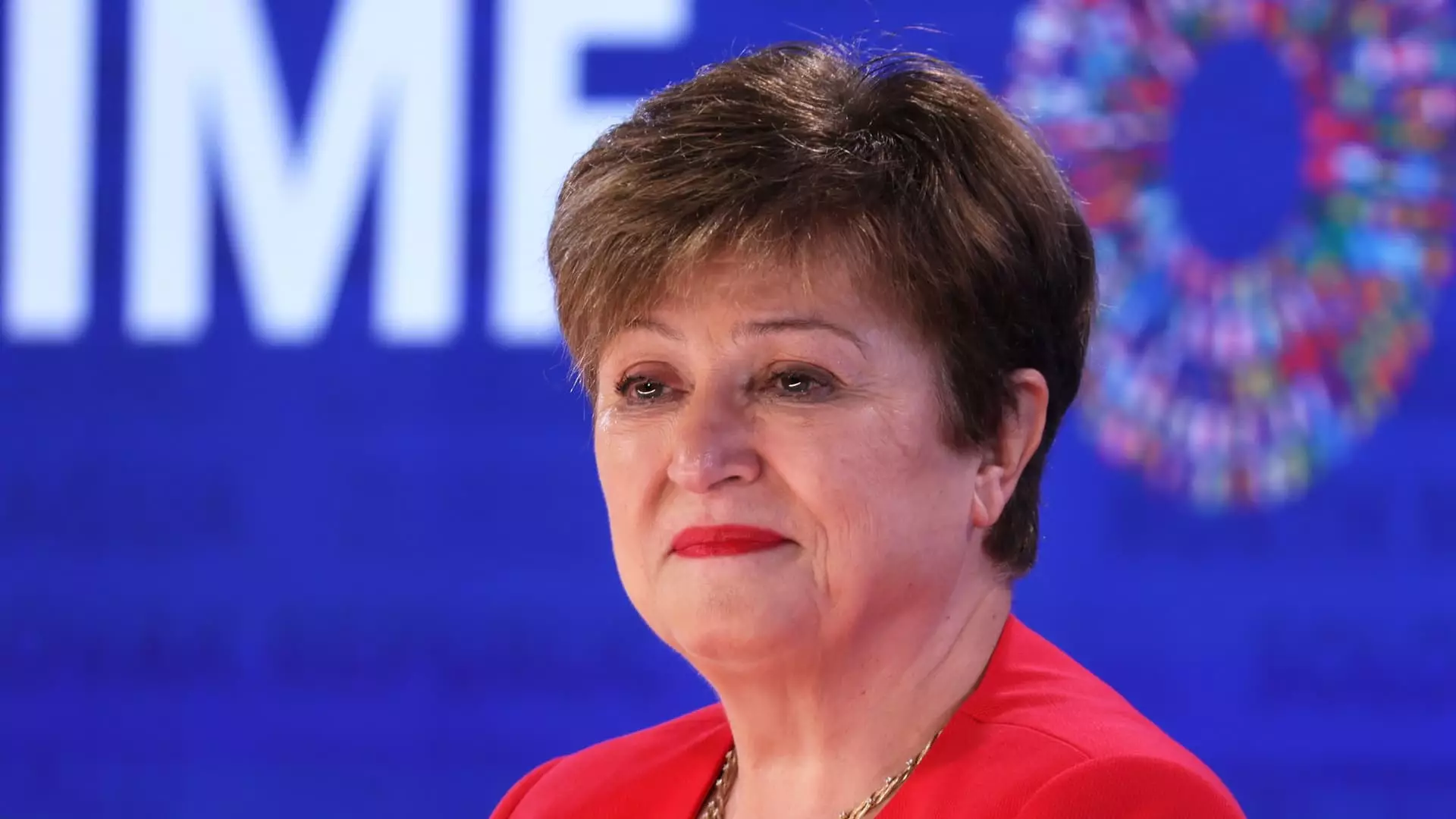In a world still grappling with the repercussions of the COVID-19 pandemic and ongoing geopolitical strife, the state of the global economy presents a mixed picture. Kristalina Georgieva, the Managing Director of the International Monetary Fund (IMF), recently underscored pressing challenges facing nations worldwide, primarily characterized by soaring debt levels and stagnant growth rates. The IMF’s observations reveal a vital truth: despite the considerable strides made in global economic recovery, governments have developed a reliance on borrowing without yielding substantial economic expansion. The persistent struggle with low growth rates poses a significant threat to sustainable debt management and financial stability.
Georgieva aptly noted that the alarming blend of “anemic growth” and high debt levels can prevent countries from achieving their economic potential. Rather than celebrating purported recovery, there is an urgent need to introspect and take stock of economic fundamentals. This sentiment resonates with financial analysts who caution against complacency in the face of persistent vulnerabilities that undercut resilience in the global marketplace.
A critical area of concern highlighted by Georgieva is the uneven success of measures aimed at controlling inflation. While major economies like the United States and those in the European Union have displayed relative stability, pockets within and outside these regions are still suffering under the weight of rising prices. Such inconsistencies contribute to a landscape rife with social and economic discontent. Georgieva emphasized that, for many, inflation is more than just a statistic—it translates into lived experiences marked by rising costs of living and a diminished perception of economic security.
The ramifications of high prices extend beyond fiscal concerns; they fuel a climate of unrest that undermines social cohesion. As ongoing tensions within various economies continue to feed discontent among citizens, it is imperative for leaders to take decisive actions that address both the economic metrics and the emotional sentiments of their constituents.
Shifts in Global Trade Dynamics
The restructuring of international trade plays a crucial role in shaping the global economic landscape. Georgieva warned that traditional trade avenues are losing their potency as engines for growth, a shift ingrained by the emergence of an increasingly protectionist mindset among nations. Trade disputes, notably between the U.S. and China, cater to nationalistic sentiments but ultimately risk igniting retaliatory measures that could spiral into larger economic rifts. In this context, Georgieva’s advocacy for measured approaches to trade policy becomes increasingly relevant.
Emerging from the shadows of the pandemic, societies are recognizing the profound impacts of global interconnectedness. As these dynamics evolve, it becomes essential for policymakers to weigh the benefits of globalization against the dislocations experienced by specific sectors and communities. The emphasis must shift towards developing mechanisms that support those adversely affected by economic policies rather than retreating into protectionist stances.
Another vital theme presented by Georgieva pertains to the escalating geopolitical tensions globally. The intersection of economic policy with national security concerns, especially in light of recent events like Russia’s aggression in Ukraine and unrest in the Middle East, raises substantial concerns for global financial stability. The multifaceted risks presented by such geopolitical dynamics cannot be overlooked; they underscore the interconnectedness of economies and the potential ripple effects of localized crises.
As geopolitical challenges mount, it is incumbent upon global leaders to prioritize cooperation and dialogue. A collective approach toward economic sustainability and stability can potentially mitigate many of the dangers stemming from narrow-minded national interests. The economic health of nations is inherently linked—disturbances in one region can echo and manifest as broader economic instability.
In light of the insights provided by Kristalina Georgieva, it becomes crystal clear that the road ahead for the global economy is fraught with challenges. Effective navigation requires an emphasis on sustainable growth, proactive measures to tackle inflation, and a rejection of insular trade practices. Furthermore, recognizing the interconnected nature of today’s world necessitates a commitment to multilateral collaboration aimed at fostering stability and prosperity.
Governments and institutions must act decisively—not just to respond to economic indicators but to address the human elements that underpin these metrics. Only through such holistic and inclusive strategies can we hope to reverse trends of economic stagnation and social discontent, paving the way for a resilient global economic future.

Leave a Reply